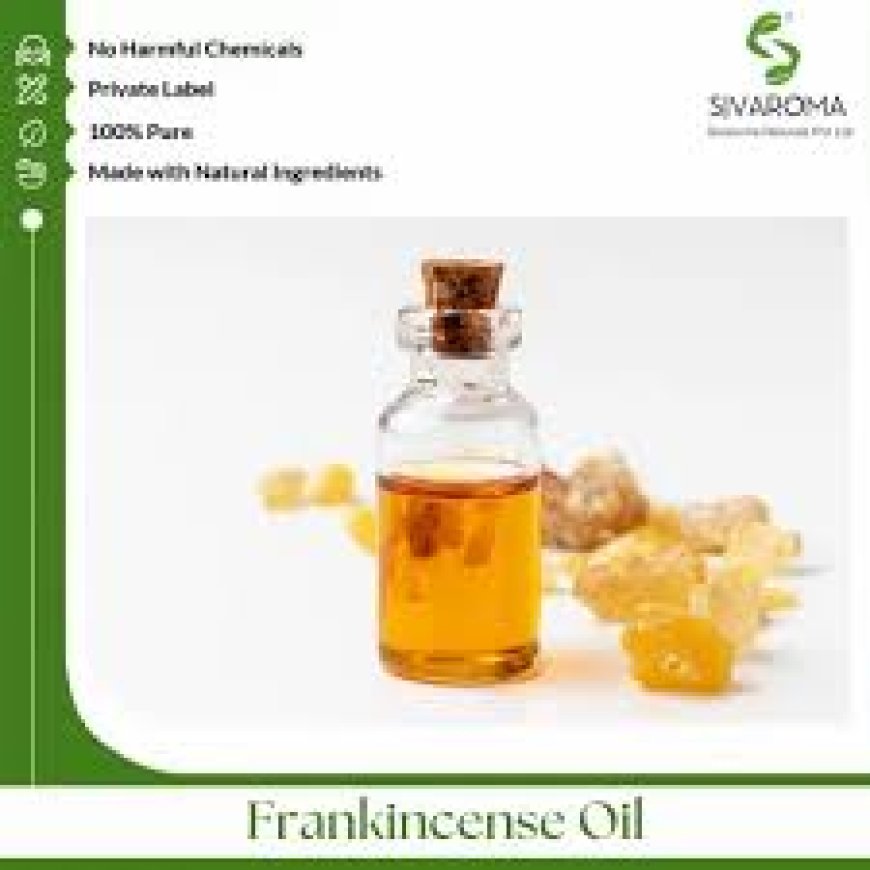Leading Essential Oil Exporters Supplying Globally
For businesses looking to partner with reliable suppliers, understanding the role and value of leading essential oil exporters is crucial.

The global demand for essential oils has surged in recent years due to the growing popularity of natural wellness products, aromatherapy, organic cosmetics, and alternative medicine. As businesses across sectors such as personal care, pharmaceuticals, and food & beverages seek high-quality natural ingredients, essential oil exporters play a vital role in bridging the gap between production and international supply.
These exporters not only distribute pure and natural essential oils but also uphold quality standards, meet global regulatory requirements, and ensure sustainable sourcing practices. For businesses looking to partner with reliable suppliers, understanding the role and value of leading essential oil exporters is crucial.
The Role of Essential Oil Exporters
Essential oil exporters are responsible for sourcing, processing, packaging, and shipping essential oils from their country of origin to buyers worldwide. Many exporters work directly with farmers, distillers, and local cooperatives to ensure that the oils are ethically harvested and processed using methods that preserve their natural integrity.
These exporters typically handle:
-
Bulk and wholesale supply
-
Compliance with international regulations (such as REACH, FDA, or ISO certifications)
-
Customized labeling and packaging for private labels
-
Documentation for customs clearance and phytosanitary standards
Because essential oils are used in sensitive applications such as skincare, medicine, and food flavoring, exporters must adhere to strict quality assurance protocols, including third-party testing, batch traceability, and proper storage conditions.
Key Qualities of Trusted Exporters
When selecting essential oil exporters for your business, it’s important to evaluate their capabilities beyond just price and product availability. The most dependable exporters share several common traits:
-
Product Purity and Transparency
Authentic exporters offer 100% pure essential oils, free from synthetic fillers or chemical additives. Many provide GC/MS reports and certificates of analysis (COAs) to demonstrate their commitment to quality and transparency.
-
Wide Product Range
Top essential oil exporters typically carry an extensive catalog, including popular oils like lavender, eucalyptus, tea tree, and peppermint, as well as niche or rare oils such as helichrysum, neroli, or sandalwood.
-
Compliance with Export Standards
Reputable exporters comply with international trade regulations, including packaging standards, safety data sheets, and labeling guidelines required by importing countries.
-
Sustainable and Ethical Sourcing
Many global buyers prioritize exporters who support sustainable farming, fair wages for local harvesters, and environmentally friendly practices in production and logistics.
-
Scalable Fulfillment
Leading essential oil exporters can handle orders of varying sizes, from small batch shipments to large container loads, while maintaining consistent quality and timely delivery.
Leading Countries and Exporters in the Industry
Several countries are known for producing and exporting high-quality essential oils due to favorable climates, rich biodiversity, and long-standing expertise in distillation and farming practices.
-
India: A major player in the essential oil market, India is home to exporters specializing in oils like lemongrass, palmarosa, vetiver, and peppermint. Companies such as Aromaaz International and Katyani Exports have established themselves as key exporters.
-
France: Known for lavender and other floral essential oils, France is a hub for premium-grade oils, with companies like Florihana exporting organic and high-end products globally.
-
Australia: Famous for its eucalyptus and tea tree oils, Australian exporters are recognized for producing therapeutic-grade essential oils with strict quality controls.
-
United States: While not a leading producer, the U.S. is home to several large-scale exporters and distributors of essential oils sourced from around the world, often catering to the North American market.
-
China: With a vast agricultural base, China exports various essential oils, particularly camphor, cassia, and star anise oil, often at competitive pricing.
These exporters have built global networks that allow them to supply to manufacturers, private label brands, health and wellness companies, and online retailers.
How to Choose the Right Exporter
Before finalizing a partnership with essential oil exporters, consider the following steps:
-
Request product samples and test results to verify quality
-
Review their export documentation and compliance history
-
Check references or customer reviews for reliability
-
Ensure they can meet your volume, customization, and packaging needs
-
Understand their shipping timelines and international delivery policies
It’s also wise to start with a trial shipment or a smaller batch order to evaluate service levels, communication, and consistency before scaling up.
Conclusion
As the essential oil industry continues to expand globally, choosing the right exporter is key to business success. Reliable essential oil exporters not only provide access to high-quality, natural products but also ensure that these goods are ethically sourced, tested, and delivered efficiently. Whether you are launching a skincare brand, supplying aromatherapy products, or developing wellness solutions, partnering with trusted exporters will enable you to deliver quality and value to your customers.
Careful selection and long-term relationships with the right exporters can enhance your brand’s credibility, support ethical trade practices, and ensure your supply chain remains strong and scalable in a competitive global market.




































































